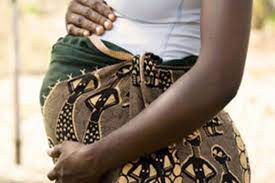Prime
Teen mothers contribute 18% of maternal deaths - report

What you need to know:
- According to the recent Uganda Demographic and Health Survey (UDHS) data for 2022, teenage pregnancy rates have stagnated at 24 percent, with a slight decrease from UDHS data for 2016, which was at 25 percent. This signals poor progress in the fight against the vice.
The Ministry of Health has revealed that teenage mothers contribute up to 18 percent of close to 3,000 maternal deaths registered annually in the country.
Dr Richard Mugahi, the acting commissioner in the Department of Reproductive and Child Health at the ministry, said teenage pregnancy is affecting the country’s development and causing increases in healthcare expenditures.
“Eighteen percent of those who die while giving birth are teenagers. These people shouldn’t be giving birth, they are supposed to be in school –these are children,” Dr Mugahi said in a meeting with journalists in Kampala yesterday.
“When these complications happen, there will be the loss of career, loss of human capital for the country, death in the family, and some of them leave young babies behind; this will make the country fail to achieve its development goal and healthcare expenditure will go up,” he added.
According to the recent Uganda Demographic and Health Survey (UDHS) data for 2022, teenage pregnancy rates have stagnated at 24 percent, with a slight decrease from UDHS data for 2016, which was at 25 percent. This signals poor progress in the fight against the vice.
Dr Henry Mwebesa, the director general of Health Services at the ministry, who was also at the same meeting, noted that the bodies of teenage girls are normally not well developed to carry pregnancy and deliver a baby.
Complications
“So, they will have complications at delivery. Obstetricians also tell us that they [pregnant teenagers] will also have a high chance of getting high blood pressure in pregnancy compared to a mother who is an adult. High blood pressure is the second major killer of mothers,” Dr Mwebesa said.
Dr Mwebesa acknowledged that the government is not satisfied with the progress in fighting teenage pregnancy. He said a decline of teenage pregnancy by one percent in five years “probably means the strategies we used in the previous five years didn’t work or we had the strategy but were not implemented.”
“So, we must sit down and see what didn’t go right,” he said.



